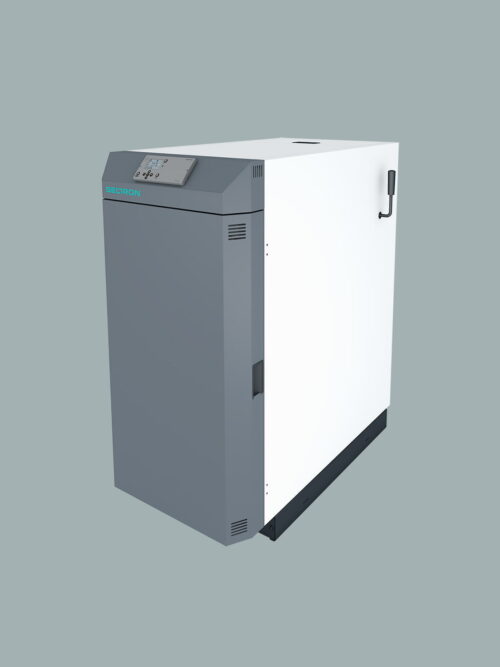Log boilers: benefits and trends in wood biomass heating
In recent years, heating with woody biomass, especially with log boilers, has become one of the most sustainable and ecological solutions for heating homes. With the rising price of fossil fuels and the growing awareness of climate change, more and more households are opting for this form of heating. This note will highlight the benefits of heating with log boilers and the current trends that accompany them.
Benefits of heating with log boilers
Ecological sustainability
One of the biggest advantages of heating with log boilers is that they are environmentally friendly. Wood biomass is considered a renewable energy source, which means that its carbon footprint is significantly lower than that of fossil fuels. Trees used for fuel absorb carbon dioxide as they grow, which means that when they burn they release the same amount of CO2 as they received from the air. This contributes to reducing overall greenhouse gas emissions and is key to combating climate change.
Financial austerity
Heating with wood logs also offers significant financial savings. While fossil fuel prices are often volatile and dependent on international markets, wood prices are usually more stable. Households with access to their own forests or local suppliers can significantly reduce their heating costs. In addition, the subsidies offered by the EcoFund further reduce the initial investment in wood biomass heating systems.
Independence from external sources
Heating with log boilers allows independence from global fluctuations in fossil fuel prices. Owners of such systems have more control over their costs and reduce their vulnerability to changes in the energy market. This independence also means more stability and predictability in planning annual heating budgets.
Efficiency and advanced technology
Modern log boilers are designed to ensure high combustion efficiency. Gasification boilers such as UKP Smart, they achieve efficiencies of up to 92 %, which means that more heat is extracted from the wood. This advanced technology allows optimum use of wood, which not only reduces costs but also increases comfort and warmth in the home.
Current trends in log boiler heating
Increased use of smart technologies
As technology advances, more and more users are opting for smart heating solutions. Modern log boilers are often equipped with smart control systems that allow remote monitoring and control. Users can use apps to adjust the boiler's operation, control the temperature and monitor energy consumption, leading to greater efficiency and comfort.
Increased awareness of sustainable energy
The relationship between households and sustainable energy has changed in recent years. People are becoming more aware of the importance of sustainability and the impact of their choices on the environment. This shift has led to a growth in demand for wood biomass heating, which is also reflected in the growing number of sellers and manufacturers of log boilers.
Subsidies and financial support
Governments and organisations around the world are promoting the transition to renewable energy through various subsidies and financing programmes. In Slovenia, EcoFund subsidies are available to make initial investment lower and heating with log boilers more affordable. This is particularly important for those who are considering switching to such systems.
Connecting with the local community
The log heating system promotes integration with local suppliers and the community. Households that choose wood biomass often work with local foresters and entrepreneurs, which contributes to the development of the local economy. This link can lead to better community relations and increased support for local businesses.
The challenges of heating with log boilers
Despite the many advantages, there are also some challenges when heating with log boilers. These include the need for adequate wood storage, which requires sufficient space and protection from the weather. In addition, regular maintenance of the boilers and proper management of the wood logs is necessary, which can require additional time and effort.
Conclusion
Heating with log boilers is a sustainable and ecological choice for anyone who wants to reduce their carbon footprint and save on heating costs. With many advantages such as financial savings, independence from external sources and high efficiency, log boilers are becoming an increasingly popular choice among households. With the growing awareness of sustainable energy and advances in heating technology, this trend is expected to continue to grow. Investing in log boilers is not only good for the users, but also for the environment, which is crucial for the future of our planet.

